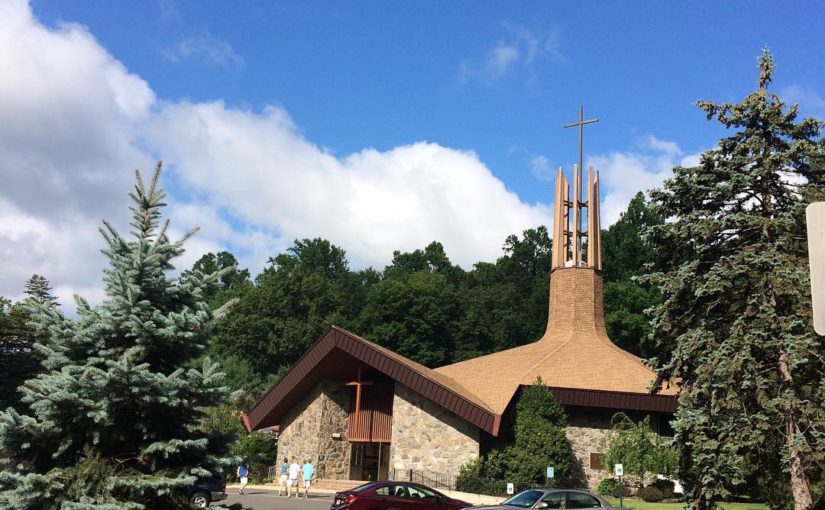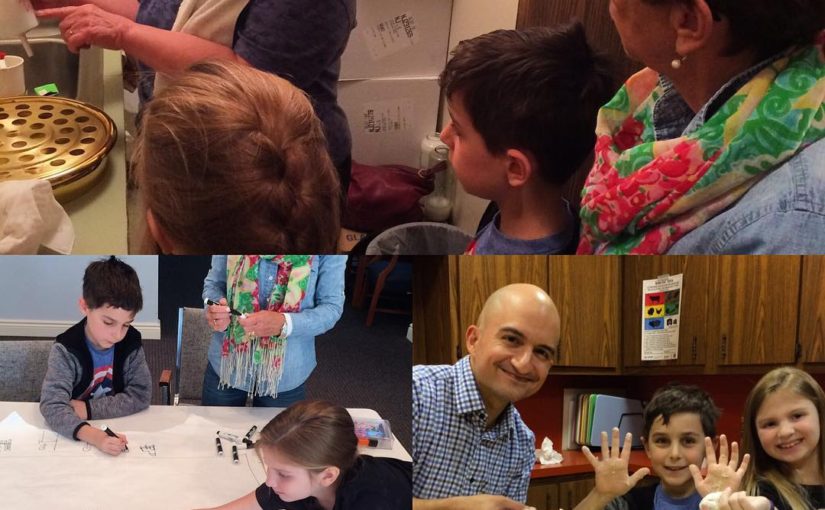The words of the Teacher, the son of David, king in Jerusalem.
Vanity of vanities, says the Teacher,
vanity of vanities! All is vanity.
What do people gain from all the toil
at which they toil under the sun?
A generation goes, and a generation comes,
but the earth remains for ever.
The sun rises and the sun goes down,
and hurries to the place where it rises.
The wind blows to the south,
and goes round to the north;
round and round goes the wind,
and on its circuits the wind returns.
All streams run to the sea,
but the sea is not full;
to the place where the streams flow,
there they continue to flow.
All things are wearisome;
more than one can express;
the eye is not satisfied with seeing,
or the ear filled with hearing.
What has been is what will be,
and what has been done is what will be done;
there is nothing new under the sun.
Is there a thing of which it is said,
‘See, this is new’?
It has already been,
in the ages before us.
The people of long ago are not remembered,
nor will there be any remembrance
of people yet to come
by those who come after them.Ecclesiastes 1:1-11
My sermon from the 10th Sunday After Pentecost (July 24, 2016) on Ecclesiastes 1:1-11 & Luke 11:1-11.
*****
“Vanity of vanities! All is vanity.”
What image comes to mind when you hear these words from the start of Ecclesiastes? For me, I can’t help but imagine I’m in the middle of a giant industrial warehouse. I’m alone, lost in this great big building, with no idea how I got there or how I can get out. I’m stuck, surrounded on all sides, by the same kind of product, each one only slightly different from the one standing next to it. When I walk up to one and fiddle with the knobs, I notice it’s connected and working. I put my hands in the sink, letting the water flow over them, and then I look up to see my reflection in a mirror in front of me. Now, it might be because my family and I are about to start renovating a bathroom in our house, but when I hear the word vanity – I can’t help but think of a bathroom sink, a quartz countertop, chrome fixtures, and a crisp silver mirror hanging over it all. So when the author of Ecclesiastes claims that everything is vanity – well – I can’t help but imagine an unending expanse of bathroom vanities and their mirrors, creating a reflection not only of myself – but of the whole wide world too.
That sense of reflection is at the heart of Ecclesiastes. This book is expressed from the point of view of the Teacher – an elder who, after a lifetime of living, – is now reflecting on what they’ve done, where they’ve been, and what was worthwhile. The book is about meaning. So Ecclesiastes feels like a grandparent telling us to pull over a chair, sit down, and listen as they share their advice on life. And the very first thing this elder says is…vanity – everything is vanity. Now, the Hebrew word translated as vanity can be translated in many different ways. Meaninglessness, nonsense, and emptiness all work. So the second verse can also read as simply, “Everything is meaningless.” That’s sort of a downer, a depressing way to start a reflection on life in this world. We might expect to hear some kinder, more optimistic words, when an elder shares their story. But the Teacher does the opposite. Instead of beginning with our expectations, the Teacher removes them. Our understanding of what gives our lives meaning is not where the Teacher begins. The Teacher doesn’t start this search for meaning by looking at our work, our hobbies, our family, or where we come from. The Teacher starts looks with us into our mirror and starts at nothing – the very beginning of it all.
Now, looking into a mirror is hard because a mirror, especially the mirror God holds up to us, can’t hide all we want it too. When we look into a mirror, we’re looking forward as our past and present stares right back at us. The days, months, and years of our lives – the things we’ve done and the things that have happened to us are all right there, carried on our face or lying just underneath the surface. Each wrinkle and gray hair, each sunspot or scar, contains our story. And the longer we stare, the more imperfections we fine and the more failures we remember. When we, like the Teacher in Ecclesiastes, look into the faith-filled mirror that God gives us, we are not invited to romanticize what we see. We’re here to honestly see our scars, see our wounds, see when our sin has made itself known in our lives and in the lives of others. The faith-filled life is a life that does more than look forward. A faith-filled life looks backwards; a faith-filled life reflects. This kind of life admits its sin – the ways we personally forget our God and the ways our communities fail to live the way God wants us too. As we stare in the mirror, looking at ourselves, looking for our meaning – the imperfections, fears, anxiety, and concerns stare right back at us. This isn’t the meaning we necessarily want to see. And all we want to do is use that water in the sink below to wash this grime of life, away.
I don’t think the disciples, when they asked Jesus how to pray, I don’t think they expected to hear Jesus talk about meaning. They were truly just asking for some insight in how they should talk to God. And I’ll admit that I read their request a little cynically. I hear a little competition in their words. They remind Jesus that even John the Baptist taught his followers how to pray – so Jesus should teach his disciples too. By knowing the right way to talk to God, the disciples might gain a way to get God on their side. They might get God to grant them what they want. But Jesus, in the Lord’s Prayer and in the parables that follow, flips their script. He changes their expectations because praying to God is always a prayer with God. It’s a conversation with the one who created us, the one who loves us, and the one who walk with us. Prayer is about being united with the one who is the source of who we are. It’s about connecting with the one who gives us meaning. In the words of Henri Nouwen, “Prayer uncovers the hidden motives and unacknowledged wounds that shape our relationships.” Prayer lets us stare at the mirror above the vanity, see all of who we are and yet still hear what God wants each of us to know – that we are loved. “That we are God’s beloved son and God’s beloved daughter.” The disciples wanted to know what they could get from prayer. Jesus tells them to ask for anything, being all their concerns and wants and desires to God because when we pray, we are greeted by the God’s own Spirit who gives us our entire life, identity, and meaning.
Luke’s version of the Lord’s Prayer isn’t exactly the prayer we share each Sunday. The one we will say later is fuller, with bits and pieces added to it from the gospel according to Matthew and from our own church tradition. And we say this prayer over and over again, like a mantra, a manifesto of sorts, because it’s a prayer that recognizes who we are and whose we are. In the quest for meaning, we can lose sight that we are already worth more than we could ever admit. We are loved by this God who not only walks for us, but who stares in the mirror with us, and sees a new way forward. In the Cross, our limits, our sins, our imperfections staring at us are met by God’s gracious gaze. In Jesus, our meaning is nestled in the life God gave us, showing us all that life can bring. And in our baptism, the water pouring out from the faucets of our vanity is used to unite us with our God who says that this world, and all who are in it, are loved. Our meaning begins in the God who created us, the God who lives with us, and this God who redeems us. We are not limited by the meaning we earn, the meaning we chase, or the meaning the world gives us. We matter because God says we do. That’s our meaning. That’s our value. That’s the gift God gives us, helping us look at ourselves, look at our world, look and see all that is just vanity – and then take a step away from our reflection, away from our vanity, and into this wider world that God loves.
Amen.
Podcast: Play in new window | Download



